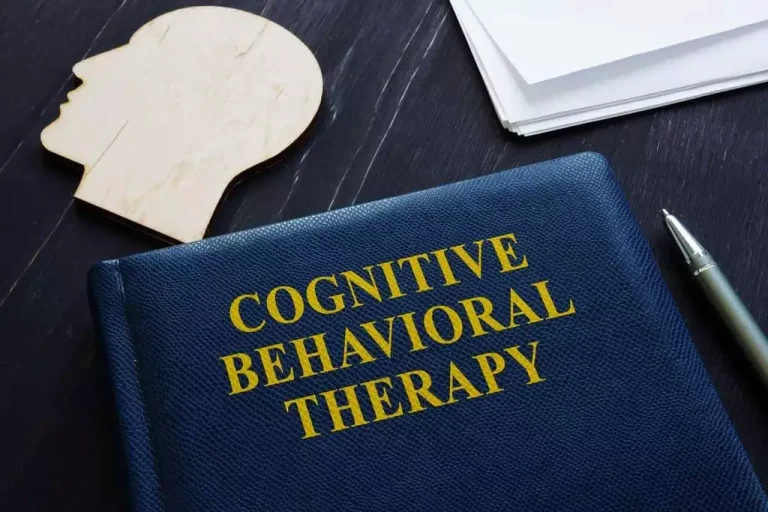Cognitive Behavioral Therapy in Addiction and Substance Abuse Treatment

Addiction and substance abuse are widespread problems that ruin people’s lives, families, and whole communities. Luckily, there are some ways to help individuals overcome these problems. One practical and proven method is called CBT or Cognitive Behavioral Therapy. It shows excellent results; nearly 50-70% of people stop using alcohol and drugs and achieve sobriety.
The method requires time and patience, as sessions don’t stop when things get better. This article will explain the foundation of CBT for addiction approach. You will know the crucial therapy blocks and which format suits you better.
What Is Cognitive Behavioral Therapy in the Sense of Addiction Treatment
In simple terms, CBT in addiction treatment is like a toolkit for your mind. It’s a way to better understand emotions, thoughts, and motives related to narcotics or alcohol intake.
Imagine it as learning how to identify tricky situations, associations or thoughts that make you want to use substances. Treatment has the format of sessions with the specialist who will help you develop strategies to deal with these challenges without turning to drugs or alcohol. It’s all about changing negative habits and replacing them with healthier ones.
The treatment process typically begins with a face-to-face conversation and assessment and diagnosis, followed by the development of a personalized treatment plan and choice of suitable strategies. The experience of the specialist is a key to overcoming addiction and long-term recovery.

Take back control of your life and start on the road to recovery now.
Specifics of Drug Addiction Therapy
In years, cognitive behavioral therapy has proven its effectiveness to battle drug addiction. It helps people pinpoint and replace the negative mentality that leads to substance abuse. Many people see significant improvements in just 12 to 16 sessions. Here are some specifics you should know about the approach:
- Identification of Triggers: CBT sessions are focused on identifying the specific triggers or situations that lead to drug use. This may include stress, social pressure, or certain environments.
- Cognitive Restructuring: Patients should recognize and challenge distorted mindset associated with drug use. They learn to replace these thoughts with more positive ones.
- Helpful Skills Gaining: Psychologists equip patients with coping skills to manage cravings and high-risk situations. These are stress management, problem-solving, and refusal skills.
- Avoiding Relapse Techniques: The aim of CBT for addiction is relapse prevention. Patients on sessions develop strategies to identify and avoid high-risk situations and effectively cope with relapses if they occur.
- Self-Monitoring: Individuals are encouraged to keep records or a diary of their drug use, thoughts, and triggers. This self-monitoring helps increase self-awareness and understand the patterns.
- Objective Setting: Planning is a crucial component of therapy. CBT helps individuals set achievable goals for their recovery. These goals act as motivators and provide a sense of direction.
Cognitive behavioral therapy for drug addiction typically refers to short- to medium-term treatment. The number of sessions may vary depending on the individual progress.

Main Blocks of CBT for Alcohol Addiction
While traditional psychoanalysis delves into past experiences, CBT mainly concentrates on current issues and future goals. It equips individuals with practical tools to handle the challenges they face today. Treating alcohol addiction with CBT is similar to drugs devoted sessions. Here are 6 main blocks of the therapy cycle:
- Functional Analysis: The first session begins with a thorough assessment of an individual’s alcohol use, identifying triggers, situations, and emotions associated with drinking. This analysis helps uncover the underlying causes of alcohol abuse.
- Setting Goals: Setting and voicing goals is the essential part of the process. Patients work with therapists to set specific, achievable objectives related to their path to sobriety. These goals provide direction and motivation to achieve recovery.
- Changing Negative Mindset: CBT focuses on recognizing and addressing negative thought patterns associated with drinking. Common thoughts might include beliefs that alcohol is necessary to cope with stress or that one cannot have fun without it.
- Coping Skills: Patients learn practical coping skills to deal with cravings and high-risk situations. These skills may include stress management techniques, problem-solving strategies, and assertiveness training.
- Recurrence Prevention: A central component of CBT is developing a relapse prevention plan. Patients should identify high-risk situations, create strategies to avoid them, and develop coping mechanisms for potential relapses. This is the most challenging step.
- Harm Reduction: In some cases, CBT may incorporate harm reduction strategies, focusing on reducing alcohol consumption rather than complete abstinence. This approach can be particularly beneficial for those who are not ready to quit drinking entirely.
Family therapy or involving family members in treatment can be essential in tracking dynamics and support systems related to alcohol addiction. In some cases, CBT may be used alongside medications approved for treatment, or with dialectical behavioral therapy to achieve better results.
Benefits of Therapy Sessions
Cognitive behavioral therapy offers numerous benefits in dependency treatment, making it a widely used and effective approach. It is one of the most extensively researched and empirical therapies for substance use disorders. Here are the main reasons to choose this type of treatment:
- Addressing Root Causes: It delves into the underlying causes and triggers of addiction, such as negative thought patterns, distorted beliefs, and unresolved emotional issues. By addressing these root causes, addicts develop healthier coping mechanisms.
- Customization: CBT is highly adaptable and can be tailored to the unique needs and circumstances of each individual. Psychologists work collaboratively with clients to set personalized goals and strategies.
- Integration with Medication-Assisted Treatment (MAT): CBT can be united with MAT for individuals with opioid or alcohol use disorders. Such a combination approach addresses both the physiological and psychological aspects of addiction.
- Cost-Effectiveness: CBT is often considered cost-effective in addiction treatment because it tends to be shorter compared to some other therapies.
CBT specialists equip individuals with lifelong skills to maintain sobriety and prevent relapse. At its core, therapy focuses on building a foundation for lasting recovery. It can be delivered in various formats, including individual or group therapy, and even self-help resources like workbooks and apps. This versatility makes it an affordable tool for different categories of patients.
Possible Formats of Cognitive Behavioral Therapy
Individual format of cognitive behavioral therapy involves one-on-one sessions between the client and a trained therapist. This could be a psychiatrist, psychologist, mental health nurse or general practitioner. Such sessions allow for personalized assessment and treatment planning, making it highly tailored to the individual’s specific needs and goals. Therapy provides a safe and confidential space to address addiction-related challenges.
Group sessions involve multiple participants who meet regularly to work on their addiction issues together. It offers a supportive environment where individuals can share their experiences, learn from others, and practice new coping skills on how to treat addiction in a social context. Sessions are aimed to build a sense of community and reduce feelings of isolation.

Addiction often affects not only the individual but also their family members or significant others. Family or couples CBT involves therapy sessions that include family members or partners. It aims to improve communication, address enabling behaviors, and help loved ones understand and support the person in recovery.
Intensive outpatient programs are another type. They offer structured and comprehensive treatment while allowing clients to live at home. Clients typically attend several conversations per week, covering various aspects of addiction recovery.
Residential treatment is necessary for individuals with severe substance use disorders or complex needs; such programs may provide 24/7 care within a controlled environment. CBT is often incorporated into the treatment curriculum alongside other therapeutic modalities, such as individual counseling, group therapy, and medical detoxification.
Technology developments have made it possible to deliver CBT through online platforms or mobile applications. Today, individuals can choose and access self-guided programs or participate in virtual therapy sessions with a licensed therapist. Online therapy can increase accessibility for those with difficulty attending in-person sessions.

This can be a difficult journey, but you don’t have to go it alone. Let us be your guide and provide you the environment needed to regain control of your life and begin the path to recovery.
Open Your Door to Sobriety with Eco Sober Houses
Cognitive behavioral therapy has remained at the forefront of addiction treatment for many years. Innovations, including the use of technology and virtual therapy sessions, hold promise in expanding the accessibility and effectiveness of CBT. Its holistic approach addresses the complex nature of substance use disorders and wins people’s trust.
Recovery from addiction is a challenging journey, but with the support of evidence-based therapies and the compassionate professionals at Eco Sober Houses, it is possible to achieve lasting sobriety and a brighter future.
If you know someone who is struggling with addiction and seeking help, don’t hesitate to visit our sober house. Our team of dedicated and experienced professionals is ready to provide the guidance and support needed on the path to recovery. Contact Eco Sober Houses today to take that important step toward a healthier, substance-free life.




